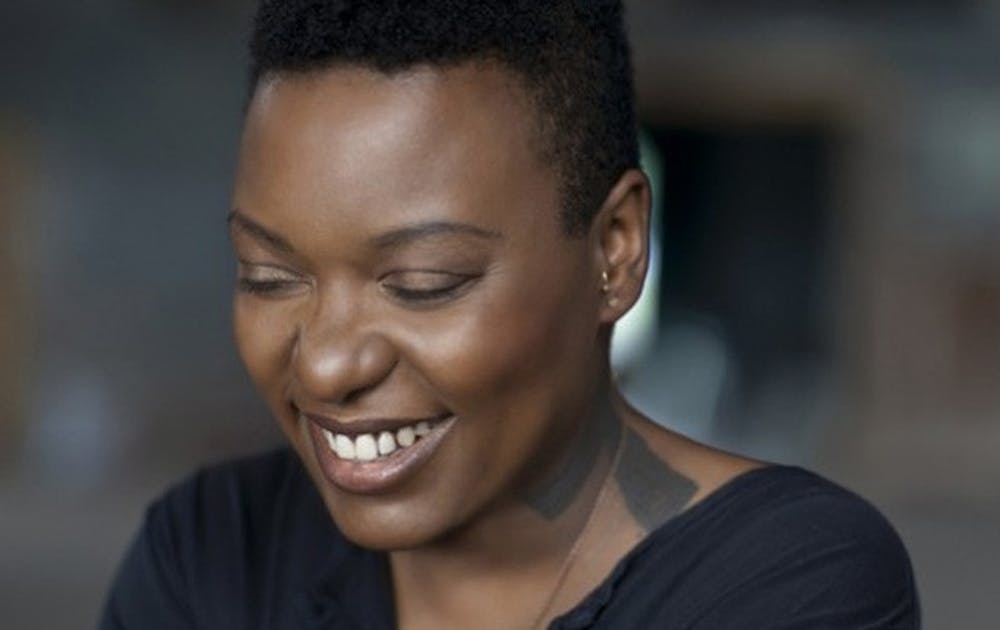Everyone agrees (or at least I hope everyone agrees) that we should remember Nina Simone. But which Simone? Simone was a woman of many hats. There’s Simone the Civil Rights activist: the Simone whose songs spoke so freely and so confidently about the suffering of black Americans that many southern states decided to boycott her music altogether. This is the Simone who was the mouthpiece for Langston Hughes’ “Backlash Blues,” the Simone of “To Be Young, Gifted and Black.” Then there’s Simone the ‘High Priestess of Soul’ who wrote some of the most powerful and sexy lyrics of the last century—including my favorites, “Real Real” and “Do I Move You?” There’s Simone the fearless songwriter who rebelled against simplistic and degrading stereotypes about black womanhood (“Four Women”). And then there’s the Simone of gospel music, the Simone of blues, of Broadway, of folk, of jazz.
To her immense credit, Meshell Ndegeocello doesn’t limit Simone to any one facet. Rather hers is “une ame souveraine” (a sovereign soul). The album serves as an accurate cross-section of Simone’s life and work. Ndegeocello sings and interprets songs that Simone wrote (“Nobody’s Fault But Mine”) but also songs that Simone chose to cover (“House of the Rising Sun”). She presents both A-sides and B-sides, songs that show the High Priestess at her most confident (“Be My Husband”) and her most vulnerable (“Black Is The Color of My True Love’s Hair”). “I’m just a soul whose intentions are good,” once-Simone-now-Ndegeocello sings on the album’s opening track, and, using every ounce of her modesty, makes us believe.
The main struggle of a tribute album is to make a great artist newly relevant without doing second-rate versions of his or her work. With that as the litmus test, Ndegeocello succeeds. She never tries to out-Simone Simone. I can’t hear even the slightest hints of the original “Real Real” when I hear Ndegeocello’s—and I must have listened to Simone’s definitive version a few dozen times. Whereas Simone’s version was quietly joyful, sung unobtrusively over an organ and hand clapping, Meshell’s version is bass-heavy, smooth and sultry, sung with a voice that’s darker, heavier and so damn melodic. Throughout Souveraine Ndegeocello never tries to out-power her muse. She never tries to make her voice more piercing or more striking. Instead, she lets her bass talk, lets the tracks groove, lets them bathe, and sings as she has always sung.
The album’s cameos approach Simone with the same modest re-authorship. Sinead O’Connor turns “Don’t Take All Night” into a Western-inspired piano ballad. Toshi Reagon’s “House of the Rising Sun” is a hybrid between The Animals’ rock and Simone’s blues. Valerie June’s high-pitched, nasal voice on “Be My Husband” is strikingly different from Simone’s, yet the take is refreshing. The real star of the cameos, however, is Cody ChesnuTT. His—and it is distinctly his—version of “To Be Young, Gifted and Black,” is every bit as impassioned as Donny Hathaway’s and, dare I say, even Aretha’s. It’s a pleasure to hear Simone’s powerful track totally reimagined for a new generation of black musicians.
For an album that spans various genres and decades, it flows with surprising ease. If anything, it settles too comfortably into set moods. Whereas the first third of the album is upbeat, quick and confident, the middle third is slightly despondent and unnecessarily slow. Which is to say, while each individual track is expertly arranged, the album-as-album sometimes suffers. But Souveraine isn’t really meant as a stand-alone LP as much as a tool to re-vitalize Simone, to bring her complexity, her fearlessness, her soul back onto the stage.
Get The Chronicle straight to your inbox
Sign up for our weekly newsletter. Cancel at any time.

